Netanyahu says Israel killed Nasrallah's successor
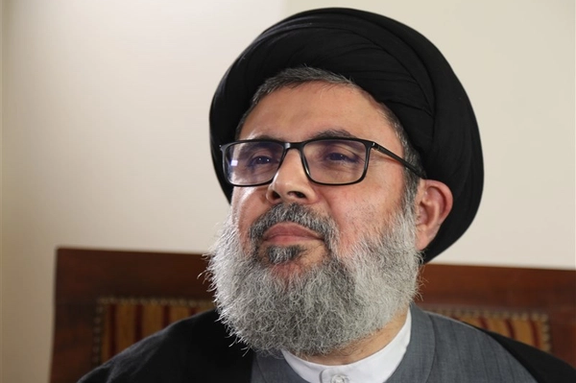
Israeli Prime Minister Benjamin Netanyahu on Tuesday suggested Israel had killed Hezbollah's most senior figure Hashem Safieddine, according to a video message he addressed to the Lebanese people.

Israeli Prime Minister Benjamin Netanyahu on Tuesday suggested Israel had killed Hezbollah's most senior figure Hashem Safieddine, according to a video message he addressed to the Lebanese people.
If confirmed, it would represent represent another major blow to the Iran-backed group as Israel steps up its invasion of southern Lebanon.
Safieddine, a cousin of slain Hezbollah leader Hassan Nasrallah and deemed his likely successor, was not present at the underground site where Nasrallah and several top Hezbollah commanders were killed in an Israeli airstrike.
"We have degraded Hezbollah's capabilities. We took out thousands of terrorists, including Nasrallah himself, and Nasrallah's replacement, and his replacement's replacement," Netanyahu said in his video address Tuesday. He did not name Safieddine.
“Today, Hezbollah is weaker than it has been for many, many years. Now, you, the Lebanese people, you stand at a significant crossroads. It is your choice. You can take back your country, you can return it to a path of peace and prosperity,” Netanyahu said.
Israel has repeatedly killed top Hezbollah leaders in air strikes after maiming and killing hundreds of its rank and file members in explosions targeting their pagers and walkie talkies.
The Israeli military said that it had targeted Safieddine had been killed in an airstrike on Beirut. Hezbollah has yet to comment on his fate.
Safieddine led Hezbollah's executive council. His brother, Abdullah, is Hezbollah's representative in Iran, and his son Redha is married to the daughter of Iran's Revolutionary Guards commander Qasem Soleimani, who was killed by a US drone strike in 2020.
Over 1,000 Lebanese have been killed since Israel stepped up its attacks last month - a death toll that is already higher than that of a 34-day war the foes last fought in 2006.
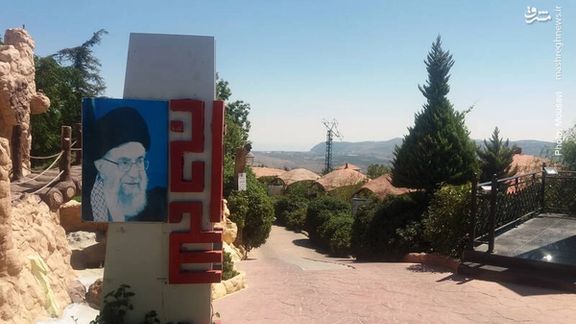
Israeli troops invading South Lebanon planted their flag over a hilltop "Iran Garden" sponsored by the Islamic Republic which once hosted likenesses of top Iranian luminaries and a model of Jerusalem's Dome of the Rock.
The apparent takeover of the heights in Maroun al-Ras village, relayed in video and pictures on social media on Tuesday, represents a symbolic setback for Iran as the Hezbollah group it backs has taken heavy blows in recent weeks.
The images show demolished structures on the terraced hillside including the ruins of the mock-up Islamic holy place which had previously been emblazoned with the "God is Great" Arabic insignia on Iran's flag.
The site also hosted children's play areas and family friendly observation decks and picnic spots. It was inaugurated by Iranian President Mahmoud Ahmadinejad in a visit to the area in 2010.
Billboards of Ayatollah Ruhollah Khomeini and current Supreme Leader Ali Khamenei had decorated the site along with a larger than life cut-out figure of slain senior Iranian general Qassem Soleimani with a finger pointing toward Israel.
None appeared to be intact based on the social media imagery.
Israel has repeatedly killed top Hezbollah leaders in air strikes after maiming and killing hundreds of its rank and file members in explosions targeting their pagers and walkie talkies.
Over 1,000 Lebanese have been killed since Israel stepped up its attacks last month - a death toll that is already higher than that of a 34-day war the foes last fought in 2006.
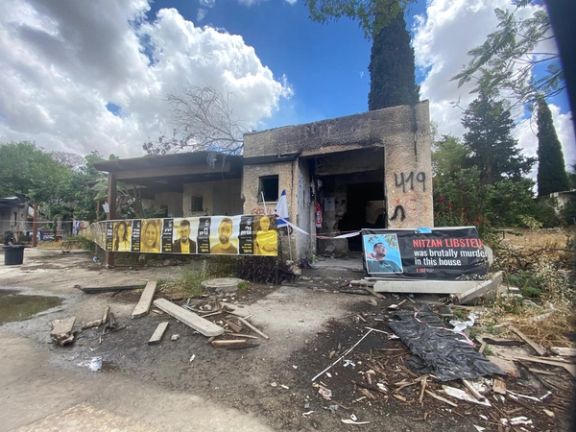
Frozen in time, families of Israeli hostages taken by Hamas feel trapped in an endless October 7, 2023. They believe Iran holds the key to their release and blame its rulers for the attacks and the ongoing conflict.
The story of Oded and Yocheved Lifshitz
Daniel Lifshitz's grandparents, Oded and Yocheved, are believers in peace.
As lifelong human rights activists, they regularly transported patients from Gaza to Israel for medical treatments in their golden years.
In 1972, Daniel said Oded challenged the Israeli military and Ariel Sharon to protect Bedouin Arabs in Rafah.
“He was a journalist, peace activist, human rights activist; he was with the Doctors Without Borders in Rwanda. They believe education is the only thing that will save Gaza,” said Daniel.
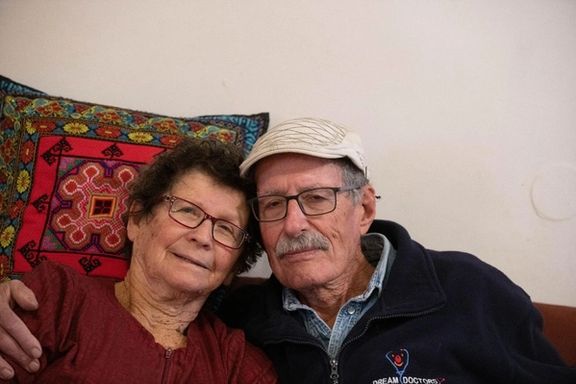
Their abduction casts light on a brutal irony: having spent their lives trying to unite both sides of the conflict, they were taken hostage and used as pawns in a war that they opposed.
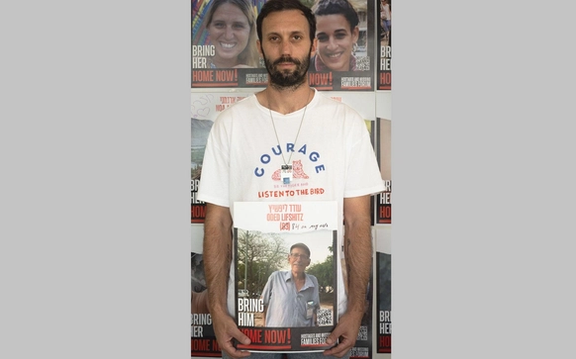
Daniel’s grandmother Yocheved was released after 16 days in captivity, but his 83-year-old grandfather Oded is still a hostage, one year on.
His best friend, a medic murdered on Oct. 7, and more than a quarter of the Kibbutz Nir Oz where he grew up with 400 members, were either kidnapped or murdered by Hamas.
His grandparents' home in Nir Oz, close to the border with Gaza in Southern Israel, burned to ashes. Daniel was in France and luckily his mother Rita and daughter were in Tel Aviv on Oct. 7, escaping potential death and abduction.
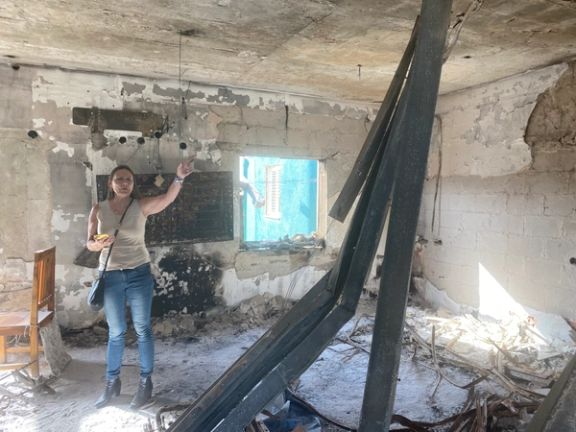
While he marks the tragedy and the pain of not knowing the fate of his grandfather and other hostages, he believes his nightmare started with the leadership of the Islamic Republic of Iran.
“Everything started from the green light of Iran, and they pushed for it.”
Daniel said Iran could end everyone's suffering and push Hamas for a ceasefire and release of the hostages, but he believes the clerical establishment is more interested in escalating the conflict.
If Israel had confronted Iran directly, Daniel says, instead of invading Gaza, the situation may have ended by now.
“I believe that if we started it with that, maybe with answering Iran and not Gaza on October 7th, things could be different.”
Israeli forces have killed 41,000 people in Gaza according to the Hamas-run Gaza Ministry of Health.
Since Hamas's surprise attack, Israel has said its goal is to destroy Hamas and that it aims to minimize civilian casualties.
Israeli official figures estimate that about 1,200 of its people have been killed since Oct.7, including about 800 civilians, 346 soldiers and 66 police officers.
Judi and Gadi
Judi Weinstein Haggai and Gadi Haggai were soulmates.
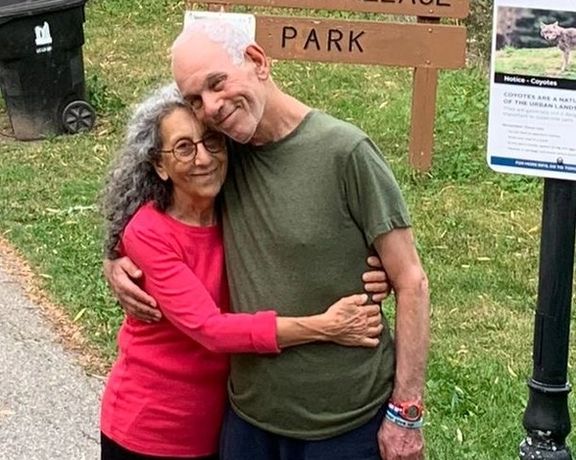
They were pro-peace activists who abhorred war, said their daughter Iris Weinstein Haggai.
She described her parents as hippies with her father playing the flute in the Israeli military orchestra, making meals in his kibbutz as a chef and her mother teaching English and mindfulness.
"They had a band together called the Jazz Alliance, and they played all over Israel."
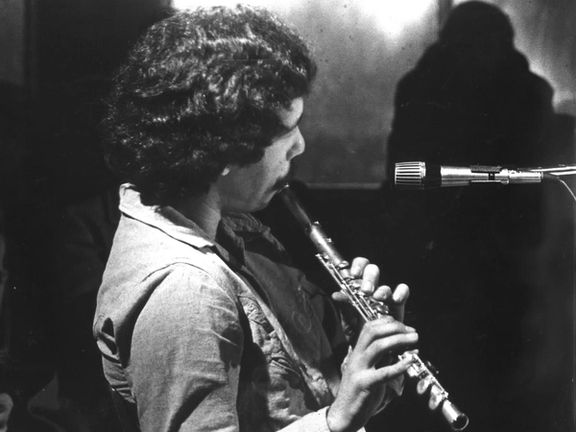
They were murdered by Hamas on October 7 after taking their morning walk outside the Kibbutz Nir Oz fields. It was something they did every day, except that day didn’t end like it always did.
Their routine ended in tragedy.
Judi witnessed her husband being killed. She called medical emergency services, describing in detail what had happened over the phone.
Their daughter, Iris, heard the tapes and shared it with the media.
Iris said paramedics tried to send an ambulance, but the wheels of the ambulance were shot by Hamas who then burned it.
Her mother died after that call, but Iris doesn’t know exactly what had happened. They had both been shot by Hamas on motorbikes, with Gadi being "hit badly" according to his desperate wife on the phone, and Judi sustaining wounds.
“All I know is that my mom witnessed my dad's murder. And that she was either murdered after or died from her wounds because they were both shot by terrorists on a motorcycle that day.”
Their bodies were taken to Gaza where they are still held hostage. Judi, who grew up in Toronto and was born in New York, held Canadian, American and Israeli citizenship. Her husband held American and Israeli passports.
It’s been a year, and Iris said she still doesn’t have a grave to go to.
Judi and Gadi sent a final text message to their children at around seven in the morning, saying that they were under attack from rockets. It ended with Iris asking her parents to let her know when they arrived home.
That never happened.
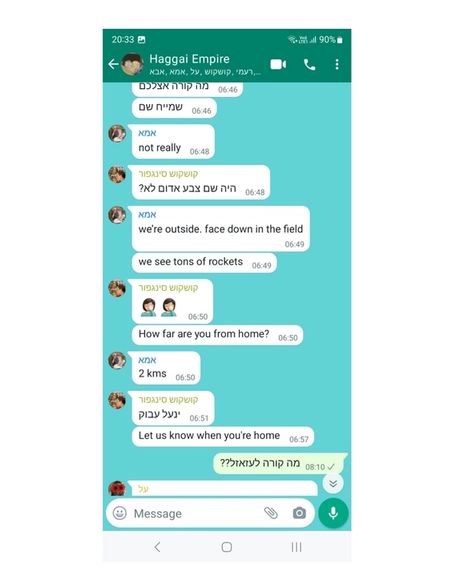
“It's just been like a long day since,” said Iris.
“They were just stolen from us. And it's that feeling that you can't create new memories anymore.”
She said her biggest regret was that her children would not get to grow up with their grandparents.
Iris has a lot of questions on why it took Israeli forces several hours to respond in Nir Oz.
An official probe found that it failed to properly assess and respond to the Hamas invasion of Kibbutz Nir Oz on October 7. The findings published in July stated that the Gaza Division sent troops to neighboring communities but not to Nir Oz itself.
It took seven hours for security forces to arrive.
While Iris wants answers from the Israeli government, she points the blame at the Islamic Republic of Iran.
She told Iran International that current events provide an opportunity to take on Iran's theocratic rulers, whom she views as the orchestrators of the attacks.
“I think it's finally time to do something about the Islamic regime in Iran. This is the time.”
Through her own pain, she has established connections with the Iranian diaspora and is trying to form a united front against what she sees as Iran's oppressive leadership.
Iris spoke of the timing of Israeli Prime Minister Benjamin Netanyahu's address to the Iranian people last week, delivered in English and subtitled in Persian, conveying a warning to the system and assurances to the people of Iran.
“I think that that unity is really strong. And there's a reason that, you know, Bibi spoke to the Iranian people. But I think we should unite somehow and create this front together,” she added.
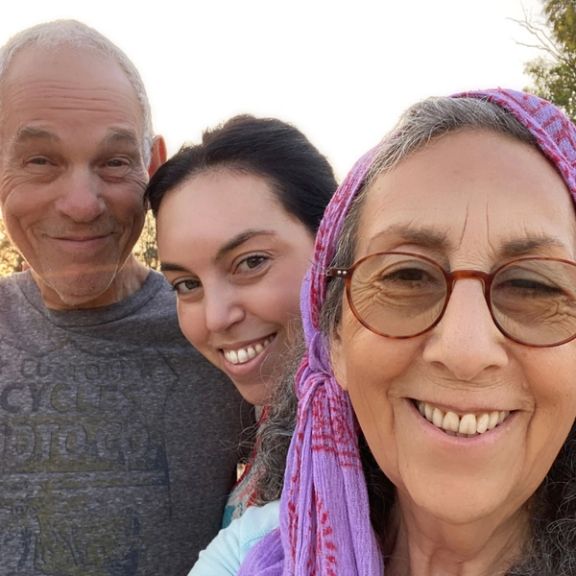
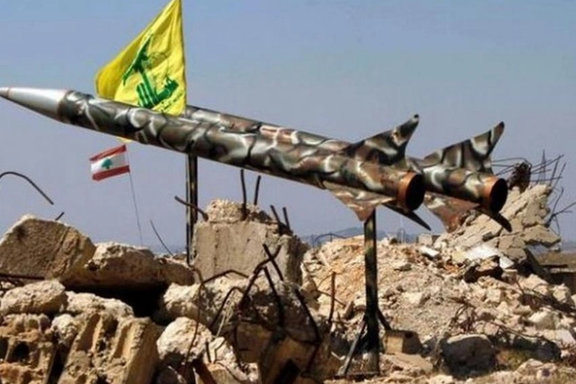
Israel’s military has eliminated Suhail Hussein Husseini, the commander of the Hezbollah headquarters who oversees budget and logistics within Iran’s largest militia, as it expanded ground operations in southern Lebanon.
Husseini played a crucial role in weapon transfers between Iran and Hezbollah and was also a member of the Jihad council, Hezbollah's senior military leadership council, said the Israeli military.
He is the latest target in an airstrike against the group's top leadership within Iran’s most powerful proxy, positioned on Israel’s northern border and designated as a terrorist organization by countries such as the US and UK.
The headquarters which was targeted includes Hezbollah's Research and Development Unit, which is responsible for manufacturing precision-guided missiles and managing the storage and transportation of weapons in Lebanon.
“In his role, Husseini was responsible for the budgeting and logistical management of Hezbollah's most sensitive projects, including the organization's war plans and other special operations, such as coordinating terrorist attacks against the State of Israel from Lebanon and Syria,” the IDF said.
The announcement of the latest killing comes as Israel expanded its ground operations into southern Lebanon on Monday.
While Israel tries to allow the safe return of the 63,000 Israelis displaced since October 8 last year, the 146th Division began “limited, localized, targeted operational activities against Hezbollah terror targets and infrastructure in southwestern Lebanon”, the military said, adding that it “follows a year of defensive activities conducted by the 146th Division on Israel's northwestern border with Lebanon”.
Hezbollah began almost daily bombardments into Israel the day after Iran-backed Hamas invaded Israel on October 7, in allegiance with the group. Since then, tens of thousands of civilians on both sides of the border have been displaced, and dozens killed. Around 9,000 projectiles have been launched at Israel since the fighting broke out.
The 146th Division is the first reserve division to operate in southern Lebanon as part of the ongoing operations against Hezbollah, so far, troops all being those in active duty.
The soldiers are operating alongside the 213th Artillery Brigade and additional forces now as the conflict continues to escalate from both ground and air.
On Tuesday, Israel's elite Golani brigade took control of a combat compound in southern Lebanon, overlooking border communities in northern Israel.
The site in the Maroun el Ras area included a residential building and an olive grove, where a launcher, loaded and ready to fire was found, according to the military.
"Additionally, underground infrastructure, terrorist hideouts, living quarters, and staging areas used by Hezbollah terrorists were identified. Inside the residential building, a staging area and a stockpile of weapons were located and destroyed, including guns, camouflage nets, military vests, and anti-tank missiles, as well as launchers hidden in the kitchen," the IDF statement said.
Hezbollah, which currently does not have a general secretary, announced that it will continue to resist Israel.
As the U.S. continues its efforts to mediate the now multi-front proxy war ignited by Hamas’ invasion, with Iran’s proxies in Iraq, Yemen, and Syria also targeting Israel, CIA chief William Burns told CBS News that while US intelligence assesses that neither Israel nor Iran seeks an “all-out conflict,” the risk of miscalculation remains high.
He warned: “We face the very real danger of a further regional escalation of conflict” while Israel is “weighing very carefully” how it will respond to last week’s attack from Iran, which saw 181 ballistic missiles rain down on the country, the second direct strike since the shadow war between the archenemies began decades ago.
Iran’s Foreign Minister Abbas Araqchi told state media: "Our dialogue continues in regards to the developments in the region to prevent the shameless crimes of the Zionist regime (Israel) in Lebanon in continuation of the crimes in Gaza.
“Starting today I'll start a trip to the region, to Riyadh and other capitals in the region and we will strive to have a collective movement from the countries of the region... to stop the brutal attacks in Lebanon."
Meanwhile, the deputy leader of Hezbollah, Naim Qassem, said on Tuesday that the group had moved beyond "painful blows" inflicted by Israel after weeks of high-level assassinations which reached leader Hassan Nasrallah, and strikes against key military targets.
Speaking on Press TV, he said the group was unharmed, the senior figures killed only "from the older generation" of founding fathers, suggesting they will be easily replaced by the next generation. A new secretary general will be elected in due course, he said.
In spite of the killings of swathes of the leadership, "there is no empty position," he said. "There is no fear that the work continues."
Last month, over 1,500 operatives were taken out of action by a movie-like plot, not acknowledged by Israel, which, over two days saw pagers and walkie-talkies belonging to the group, explode across Lebanon.
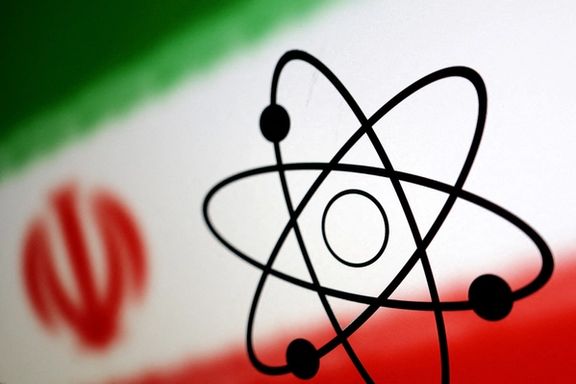
Pro-establishment voices on Persian-language social media claim a recent earthquake in Iran’s Semnan Province was actually a covert nuclear test, with ultra-hardliners calling for Iran to pursue nuclear deterrence capabilities.
“It seems that there was no earthquake but a nuclear test in Semnan two nights ago … Now [can you imagine] what would happen if that explosion occurred on the ground in Israel?” one of them asked.
The post referred to an earthquake of 4.4 magnitude on the Richter scale at a depth of 12 km, according to Tehran University’s Geophysics Institute, in Semnan Province that was felt as far as the capital Tehran.
The tremor was also recorded as an earthquake by the US Geological Survey which put its magnitude and depth at 4.5 on the Richter scale and 10 km respectively.
Despite the recorded depth of the seismic activity, many Persian-language social media users on major platforms like X and Telegram, as well as domestic platforms such as Eitaa, are calling the tremor proof of an Iranian nuclear test.
“I feel proud … Iran unveiled its magical mushroom—felicitations to all whose hearts beat for Iran,” a pro-establishment netizen tweeted.
“An Iranian bomb is our inalienable right,” another tweet with the hashtag #بازدارندگی_اتمی (nuclear deterrence), which many others have been extensively using in recent days, read.
“Our people have the right to enjoy nuclear deterrence. Have the courage to take the historical decision [to go nuclear],” a tweet addressed to the authorities that claimed the country’s nuclear program has so far cost $2,000 billion to the nation declared.
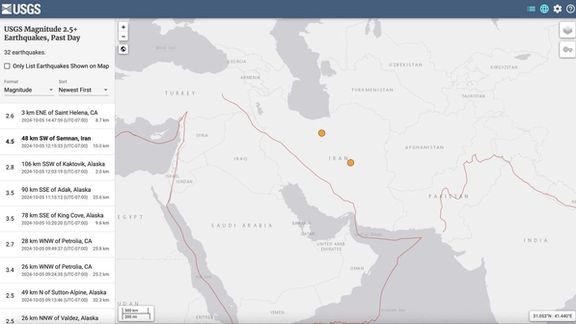
“It’s true that the decision to build a nuclear weapon and whether it is religiously banned or not lies with the Leader ... When there is talk of building nuclear weapons, it is for a balance of power and deterrence, not actual use,” another netizen tweeted arguing that Pakistan developed nuclear capabilities only after India built its bomb “to deter threats and [create] balance.”
The tweet referred to the Iranian state's official argument, based on Supreme Leader Ali Khamenei's often disputed nuclear fatwa, that Iran has never sought nuclear weapons because he has religiously banned all weapons of mass destruction, including nuclear bombs. Many experts have also disputed the legitimacy of this fatwa, given Iran's rapid advancement of its nuclear program raising concerns about its intentions.
Other individuals on X argued that the religious ban could and must be lifted to allow Iran to revise its nuclear doctrine.
Many other netizens, however, have refuted the claim that the tremor Saturday was the result of an underground nuclear test, pointing out that a nuclear test could not have been carried out at the depth recorded by seismological organizations.
Ultra-hardliners who fervently circulated the rumor Sunday on Telegram channels and X appear to have taken their inspiration from several tweets in English that suggested Iran may have conducted a nuclear test Saturday.
These, including a tweet by DD Geopolitics and ConflictX, based their argument on the false premise that an Armenian seismology station had picked up the tremor first and claimed that a comparison between typical earthquake vibrations and nuclear tests suggested the event resembled a nuclear test.
Several Armenian news outlets including News.am that reported the earthquake, however, had quoted Tehran University’s Geophysics Institute as their source, not an Armenian seismological station as these and similar tweets claimed.
In another tweet, DD Geopolitics displayed a graph that compared earthquake and explosion pairs, suggesting that real earthquakes were followed by several lesser tremors (aftershocks). In contrast, nuke tests by Pakistan, India, North Korea, and Soviet Union did not.
DD Geopolitics is an online media outlet run by an allegedly pro-Russian former US Navy veteran, Sarah Bills, who has been accused of running social media accounts “notorious for spreading disinformation about the war [in Ukraine]”.
“The report of a nuclear test in the desert in Semnan [Province] is not true. But it is noteworthy that many Iranians paid attention to it and in comparison, many welcomed it more than before, Mostafa Najafi, Tehran-based Ph.D. candidate in international relations at Toronto Metropolitan University tweeted.
“The idea and demand for building a nuclear weapon has grown recently following the recent increase in the level and range of threats against Iran, especially from countries with nuclear weapons, and it is being spoken of more often in official and unofficial circles,” Najafi wrote.
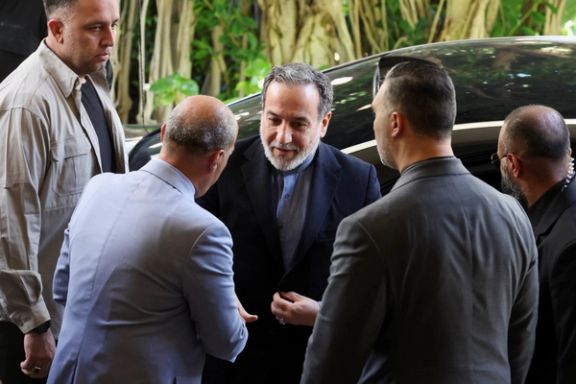
Iran's Foreign Minister Abbas Araghchi will embark on a regional tour, including Saudi Arabia, starting Tuesday, amid mounting criticism from hardline Iranian media accusing Arab states of neglecting support for Gaza.
According to the semi-official ISNA media outlet, Araghchi will discuss regional issues and work to halt Israel's operations in Gaza and Lebanon during his trip.
"Our dialogue continues regarding the developments in the region to prevent the shameless crimes of the Zionist regime in Lebanon, in continuation of the crimes in Gaza," Araghchi said in a video broadcast by state media.
He further added, "Starting today, I'll begin a trip to the region, to Riyadh and other capitals, and we will strive for a collective movement from the countries of the region... to stop the brutal attacks in Lebanon."
Meanwhile, Tasnim, a media outlet affiliated with the Islamic Revolutionary Guards, sharply criticized Arab leaders on Tuesday for their inaction without directly mentioning Araghchi’s visit to Saudi Arabia.
The outlet accused Arab leaders in the Persian Gulf region of having "merely been spectators to the Zionists' brutality in Gaza" over the past year, claiming that they not only refrained from taking a decisive stance against Israel's aggression but also, either openly or covertly, lent support to the regime and its actions.
Most Persian Gulf Arab states, like Iran, are major energy exporters and have conveyed a neutrality on the Iran-Israel conflict to Tehran, sources told Reuters last week.
Araghchi’s diplomatic efforts come shortly after his visits to Lebanon and Syria, two Arab states more aligned with Tehran.
During his first official visit to Lebanon, Araghchi emphasized Iran’s steadfast support for Hezbollah, declaring that his presence in Beirut, despite ongoing bombings, underscored this commitment. "Iran will always stand with the people of Lebanon," he tweeted.
Last Friday, Supreme Leader Ali Khamenei led prayers for the first time in five years, reinforcing a message he has focused on recently: the unity of Muslim countries against the presence of the US and other Western powers in the region. Khamenei called for solidarity, stating, “We have to tighten the belt of defense... from Afghanistan to Yemen, Iran to Gaza and Lebanon, in all Islamic countries. That’s the first issue I wanted to discuss.”
This message echoed his earlier speech in September during the 38th Islamic Unity Conference, where he reiterated his long-standing vision: "With the formation of an Islamic Ummah, Muslims can, through their internal strength, remove the malignant cancer of the Zionist regime from Palestine and eliminate the oppressive influence, domination, and interference of the United States in the region."